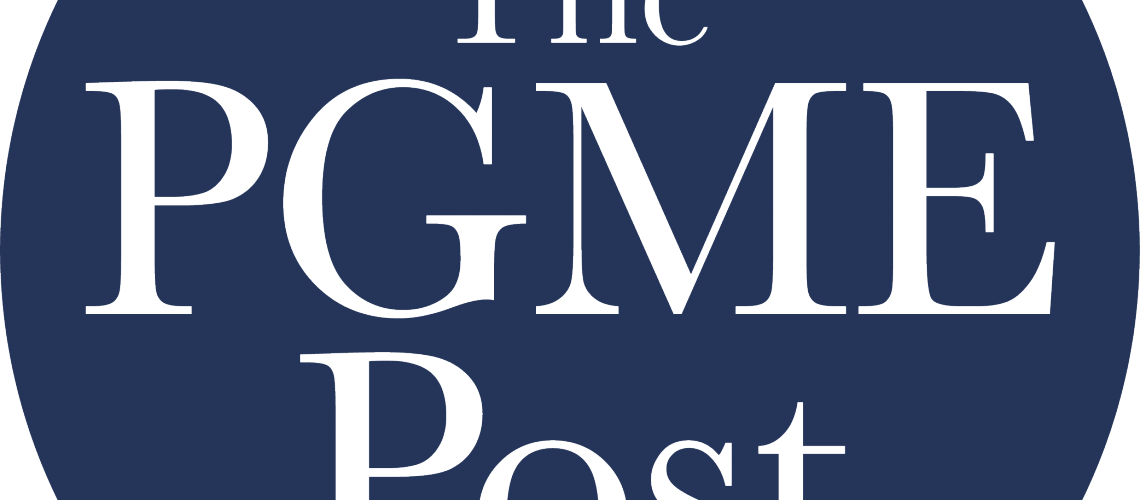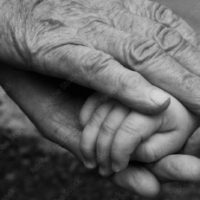
 Tansi! This means ‘Hello’ in Cree and Michif. I’m pleased to be the Indigenous Health Faculty Lead for PGME. It is important to ground the work that we do – I am Metis on my Dad’s side, with roots in Fort Chipewyan, Alberta, and mixed settler on my Mom’s side. I am also fortunate to learn from community members, knowledge keepers, and Elders from multiple communities throughout my journey in medicine and medical education.
Tansi! This means ‘Hello’ in Cree and Michif. I’m pleased to be the Indigenous Health Faculty Lead for PGME. It is important to ground the work that we do – I am Metis on my Dad’s side, with roots in Fort Chipewyan, Alberta, and mixed settler on my Mom’s side. I am also fortunate to learn from community members, knowledge keepers, and Elders from multiple communities throughout my journey in medicine and medical education.
My role is a unique one in that I work within the Office of Indigenous Health and the various other Faculty Leads in PGME. My goal (and our goal in the OIH) is to support Indigenous members of our community, including those on the University campus and in our affiliated hospitals. As it relates to education, we support learners, faculty, and staff across the education continuum. Our goal is to cultivate and promote a learning and working environment which is culturally safe, where Indigenous knowledge is respected and valued, whilst co-creating an ecosystem of partnership and wellness.
To simplify this, there are two overarching roles that I play. First, my role is to support Indigenous learners, faculty, and staff to create culturally safe learning environments and, ideally, continue to increase the number of Indigenous residents in our programs. Secondly, I work with non-Indigenous stakeholders in residency education to enhance competency in Indigenous health, including didactic education and supporting experiential learning. We have successfully completed multiple half-days for residents, including having Temerty’s Surgical Foundations program be the first program in Canada to pilot the new Royal College’s Indigenous Health Foundations curriculum.
How can I support your program or residents? I am happy to connect with resources or strategies for Indigenous Health teaching for your program. I would be pleasd to meet and mentor Indigenous residents and fellows to provide support in their program and career planning. I am also keen to be involved in re-envisioning how the CaRMS process can work differently for Indigenous residents. Above all these, I am here to be a colleague for you in this work, because we must walk this path together.
 As 2023 winds down, we are excited to share a new edition of Sim City News! This newsletter is proud to spotlight our SEAC trainee members for 2023-2024, Dr. Jabri and Dr. Darweish. Our Faculty Sim Spotlight is our Surgical Foundations Program Director, Dr. Mark Wheatcroft who is a passionate simulation expert and educator.
As 2023 winds down, we are excited to share a new edition of Sim City News! This newsletter is proud to spotlight our SEAC trainee members for 2023-2024, Dr. Jabri and Dr. Darweish. Our Faculty Sim Spotlight is our Surgical Foundations Program Director, Dr. Mark Wheatcroft who is a passionate simulation expert and educator.
It was a privilege to tour many of our Simulation Centres and a few highlights from some of my visits are included below. Only simulation can provide the rare opportunity for a Geriatric Psychiatrist to practice her laparoscopic skills! Please check out pictures of the brand new Rands Family Simulation Centre at Michael Garron Hospital and the impressive high fidelity Sim OR from Temerty Advanced Surgical Education & Simulation Centre (Temerty Centre) at The Michener Institute of Education at UHN.
You can view the latest issue of Sim City News here and please subscribe to stay up to date. If you have simulation-related news, events, or photos to share please contact us at simcitynews@utoronto.ca

Dr. Richard Reznick SSC Founder, Proctoring an OSATS exam station.
In September 1998 the University of Toronto Surgical Skills Centre at Mount Sinai Hospital opened its doors to one of the first comprehensive Surgical Taining Centres in North America. It was the vision of Dr’s Richard Reznick, John Wedge and Zane Cohen to build a dedicated centre in which surgical skills could be taught and evaluated outside of the traditional apprenticeship model within the operating room. It was a novel idea that bloosmed into a worldwide movement changing the pattern of training for surgical residents around the world. Simulation would become the “mot du jour” amongst surgical and medical education leaders insiting research in surgical and medical education to a new level.
Moving forward 25 years to present day the SSC remains a thriving part of the Unviersity of Toronto’s Department of Surgery educational program being cited by Dr. John Rutka, past Chair Department of Surgery, as the jewel in the crown of the Department of Surgery. The centre has been privileged to be supported by 3 D.H. Gales Directors in its 25 years of operation. Dr. Carol Hutchinson 1998 to 2000, Dr. Helen MacRae 2001 to 2011 and our current director, Dr. Oleg Safir 2011 to 2023. Part of the success of the SSC is due to the dedicated leadership of the directors in moving the lab in an upward trajectory since its inception. The staff of the SSC have also been long standing employees dedicating their skills and knowledge to the delivery of quality educational programs.

Current DH Gales Director, Dr. Oleg Safir Teaching Ortho Techniques

The second DH Gales Director, Dr. Helen MacRae

The first DH Gales Director, Dr. Carol Hutchison
Over the years the SSC has supported over 40 research projcets many being published in highly praised journals such at the BJM, Annals of Surgery and the Journal of Surgical Education to name but a few. The first study on the creaation of the Objective Structured Assessment of Technical Skills (OSATS) exams for surgical residents was developed at the SSC. The study concluded that OSATS can reliably and validly asses surgical skills. The OSATS exam has been adopted by many medical schools as part of their evaluation system and expanded to include Colorectral, General Surgery and Dental OSATS exams.
Our population of learners has grown substantiatly to include residents, students, fellows and faculty in not only the surgical domain but affiliate healthcare professions also. With over 6,000 turnstile learners per year, the SSC is in constant flux moving from low fidelity simulation courses for novice learners to high fidelity education utilizing cadaveric tissue to fullfill the advanced learner needs.
The SSC is an award winning centre having been chosen as the winner of the prestigious 2017 ASPIRE award in Recognition of Excellence in Education, Excellence in Simulation. The award ceremony took place in Helsinki Finland.
Since 2006 the SSC has been a Comprehensive Level accredited institute with the American College of Surgeons (ACS) Accredited Education Institutes (AEI) for which participating institutes and skills centers ensure the delivery of the highest quality surgical education.
With the onset of AI, Surgcial Robots and highly sophisticated training simulators one can only imagine what the next phase of training will look like but know that the Surgical Skills Centre will be there to support its surgeons and healthcare professionals of the future.
Lisa Satterthwaite, Senior Consultant
University of Toronto Surgical Skills Centre at Mount Sinai Hospital


No Upcoming Events found!
Monday-Friday: 8:45am-5:00pm
No Upcoming Events found!
